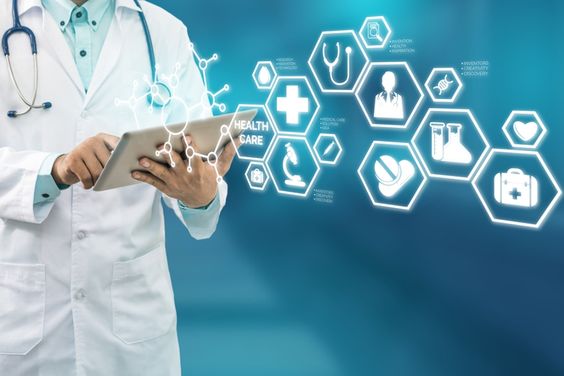Technology developments, regulatory modifications, and changing patient expectations are all driving significant changes in the way that healthcare data is used. This paper gives a succinct summary of how the healthcare data environment is evolving, emphasizing the major trends and advancements that are reshaping the sector.

EHRs (Electronic Health Records):
The increasing use of EHR systems is simplifying the administration of patient data, enhancing care coordination, and enabling data exchange across healthcare professionals.
- Data Exchange and Interoperability:
The smooth flow of patient data across various healthcare systems including providers is made possible by efforts to establish interoperability, which enhances care continuity. - Remote monitoring and telemedicine
Massive volumes of patient data are being produced by telehealth services along with remote monitoring technology, enabling virtual consultations with real-time health monitoring.
Wearable health technology and IoMT:
Wearable technology and sensors are contributing to the growth of the Internet if Medical Things (IoMT), which is gathering information for individualized healthcare and illness prevention.
Big Data Analytics: **5.
Large amounts of healthcare data are being mined for insights using advanced analytics including machine learning, which will enable better decision-making.
- Access to patient-specific data:
Through patient portals as well as mobile applications, patients are gaining greater access to and control over their health data, enabling them to participate more actively in their treatment.
Data Privacy and Security: **7.
Since patient information is protected by legal frameworks like Flsa (Health Insurance Portability along with Accountability Act), it is crucial to guarantee the security and privacy of medical information.
- Precision and genomic medicine:
Precision medicine uses genomic data to personalize therapies based on a patient’s genetic profile. - The Ethical Use of Medical Data
The ethical use of medical information for both research and therapy is dependent on factors including permission and data ownership. - Healthcare Research Data:
Medical research may benefit greatly from healthcare data, which has helped to advance knowledge of diseases, the creation of new drugs, and the effectiveness of treatments.
Technological advancement and the shifting demands of both patients and medical professionals are driving changes in the landscape of healthcare data. Key factors in this change include telemedicine, data analytics, EHRs, and interoperability. Healthcare practitioners, academics, and politicians who want to manage the shifting world of healthcare data must stay up to date on these changes.
